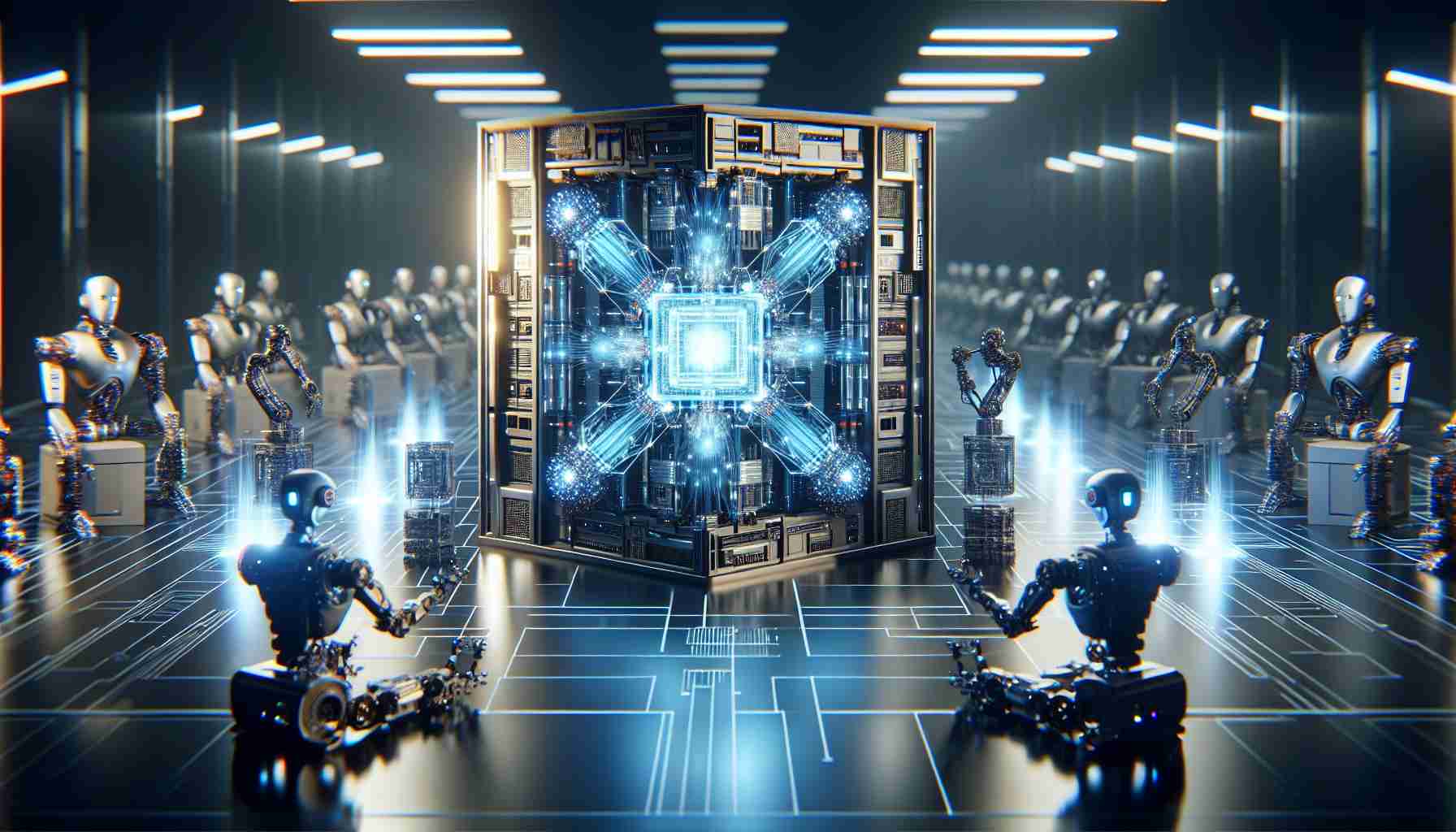In a fascinating exploration, researchers are delving into the promising convergence of quantum computing and robotics, a fusion that could redefine the capabilities of autonomous systems. This innovative field, known as quantum robotics, aspires to overcome the limitations faced by traditional robotic technology by leveraging the principles of quantum mechanics.
At the core of this research lies the potential for quantum computing to address critical issues in classical robotics, such as data processing efficiency and real-time responsiveness. Quantum robotics utilizes phenomena like superposition and entanglement to process information at unprecedented speeds, promising to vastly enhance the cognitive functions of robots.
The study highlights two primary research areas. The first involves improving existing robotic tasks with quantum algorithms, significantly enhancing functions such as navigation and decision-making. The second focuses on embedding quantum mechanics into the robots themselves, exploring possibilities for quantum communication and processing within robotic units.
Yet, despite its vast potential, quantum robotics faces considerable hurdles. The nascent stage of quantum hardware and software poses significant technical challenges. The integration of quantum and classical systems is particularly problematic due to the lack of efficient converters and robust software.
Moreover, security concerns arise as quantum robots could be targets for cyber threats when connected to networked environments. Nevertheless, the researchers are optimistic; they anticipate that advancements in quantum AI, robotics, and communication will yield a new era of automated systems.
As academic interest and technological maturity in quantum theories grow, experts predict that the realization of advanced quantum robots is not a question of if, but when.
Are Quantum Robots the Future of AI? Discover the Untapped Potential and Challenges
In the rapidly evolving world of technology, a new paradigm is emerging at the intersection of quantum computing and robotics, termed quantum robotics. While the initial explorations in this field focus on overcoming the deficits of traditional robotics, the long-term implications could revolutionize the future of autonomous systems and artificial intelligence.
The Promise of Quantum Robotics
Quantum robotics holds the promising potential to elevate the decision-making capabilities of robots by employing principles from quantum mechanics, such as superposition and entanglement. This means that robots could process vast amounts of data simultaneously, enhancing their responsiveness and operational efficiency to levels previously unimaginable.
An interesting facet of this technology is its application in quantum-enhanced artificial intelligence (AI). By integrating quantum algorithms, robots can execute complex navigational and decision-making tasks in real time, with reduced errors and unprecedented precision. This could pave the way for self-organizing robotic systems and more autonomous, self-improving AI.
The Exciting Possibilities
One of the most exciting prospects is embedding quantum mechanics into robotics infrastructure, potentially leading to innovative advancements in quantum communication and processing capabilities directly within robotic units. Envision fleets of delivery drones that not only navigate but also strategize routes using real-time quantum-calculated probabilities!
The Flip Side: Challenges and Concerns
Despite the optimistic outlook, the path to quantum robotics is fraught with significant challenges. The current stage of quantum hardware is not yet sufficient for widespread application. Moreover, the integration of quantum and classical systems remains complicated due to the lack of efficient converters and robust software that can handle the immense capabilities of quantum data processing.
Security is another major concern. With robots potentially becoming nodes on networked environments, they might be vulnerable to cyber threats. Ensuring secure quantum communication channels will thus be a paramount concern.
Sifting Through the Controversies
There’s an ongoing debate within the scientific community concerning the ethical implications of advanced quantum robotics. With autonomous machines capable of unprecedented decision-making, who is held accountable for their actions? Moreover, the possibility of the technology being used for surveillance or military applications raises eyebrows.
The Broader Impact on Humanity
The evolution of quantum robotics could lead to breakthroughs across multiple sectors. Healthcare could see robotic surgeries with unmatched precision; environmental monitoring can become more efficient with smarter, adaptive sensors; and transportation could witness safer and more efficient traffic systems.
However, the adoption of such technology also raises questions: What becomes of the human workforce in an increasingly automated world? How do societies ensure equitable access to these technological advancements?
Conclusion
While there are unanswered questions and formidable obstacles to overcome, the future of quantum robotics remains bright. The advancements in this field are likely to bring about a new era of innovative solutions and possibilities. Both challenges and opportunities abound as humanity strides into the quantum future.
For more insights and updates on emerging technologies, visit MIT Technology Review or Quanta Magazine.
